Smells That Deter Fleas: Natural Repellents for a Pest-Free Home
- person Gary Tramer
- calendar_today
- comment 0 comments

Realizing that fleas have infested your home is not a fun surprise. It's not enough that these bugs suck our blood, but they also leave annoying, endlessly itchy bumps behind in their wake. It's unpleasant enough when they bite us, but when they start bothering our kids and pets, it's officially time to wage war in the name of flea control.
When you have fleas, it can feel like there are no good options. But, in reality, there are some natural remedies that you can employ to both get rid of and prevent fleas that have other advantages too.
In a house filled with kids and pets, it can be pretty tricky to keep the space smelling as fresh as we want. With these natural flea remedies and flea sprays, your house can smell as clean as a daisy, all while being flea-free.
Ingredients like apple cider vinegar can repel fleas, but they don't always smell the best. Instead, our list features delightfully smelling, effective flea repellents.
While no one wants fleas, filling our homes with wonderful new smells is definitely not the worst part.
With all that out of the way, what are the smells that deter fleas but not humans? Here are nine scents that people love and fleas hate:
1. Cedarwood
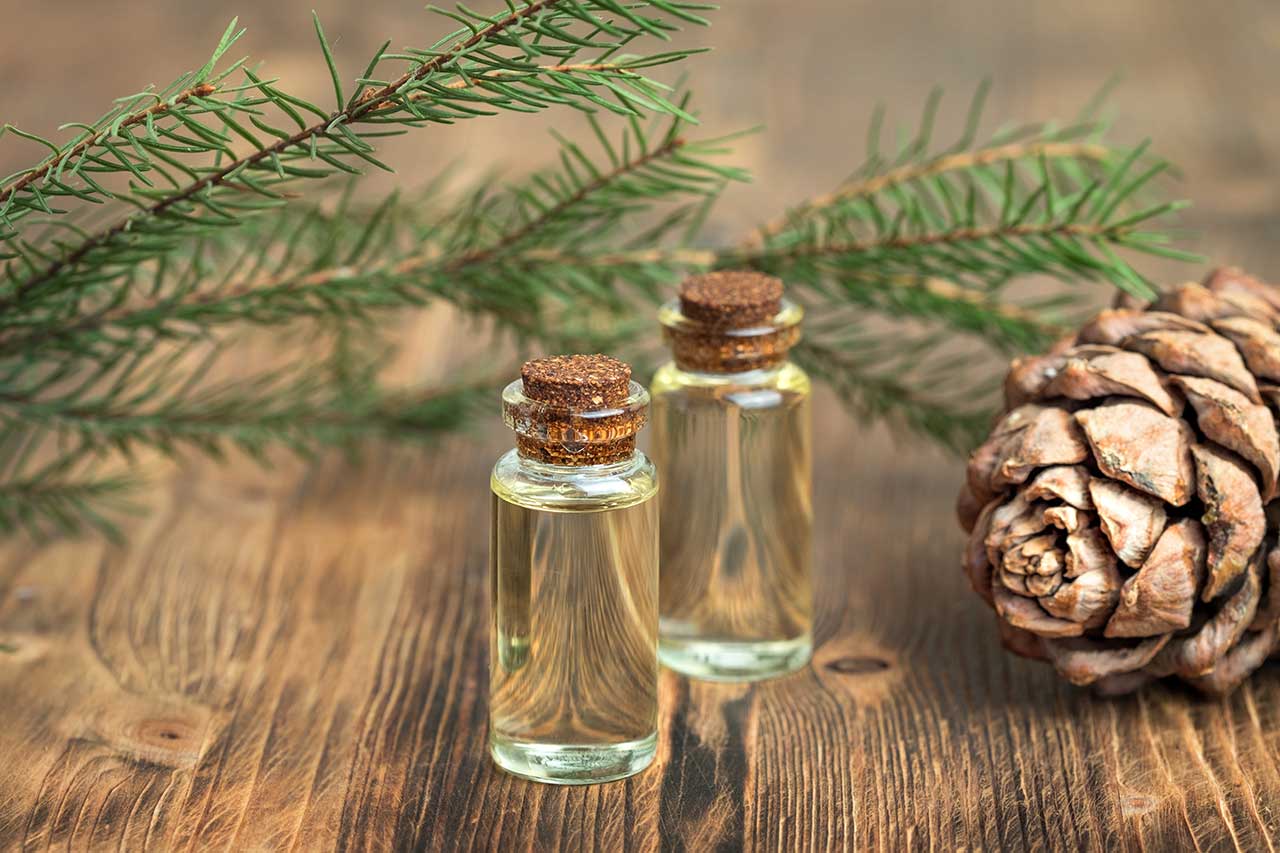
First up on our list of natural scents that will leave fleas running for the hills we have cedarwood. Cedarwood or atlas cedarwood are incredibly effective at both repelling and killing fleas. By using a diluted form of cedar essential oil, you can revel in the knowledge that the fleas will soon be very, very dead.
Cedarwood oil accomplishes this dirty yet necessary work by sucking the moisture out of the fleas, leaving them to eventually perish. Flea larvae, flea eggs, and other early parts of the life cycle will die almost immediately when they come into contact with this particular substance.
This essential oil is so widely known for being effective as a means of flea prevention that it's a prominent ingredient in many of the flea sprays already on the market. That being said, the mixture can easily be made at home so that you know exactly what's in it.
Heavily diluted forms of cedarwood oil can even be used on your dog's fur to take care of fleas at the source. We do recommend consulting with your pet's vet before taking that particular plunge, though. Not all essential oils are safe for pets, and some pets have particular sensitivities or allergies to some typically gentle materials.
If the fleas on your pet, in your carpets, and on your furniture have been dealt with, you should now turn to methods of keeping fleas at bay in the future so that this issue doesn't repeat itself. The many benefits of cedarwood can continue here through the use of cedar chips or using cedar essential oil in other kinds of natural insect repellent.
2. Citronella
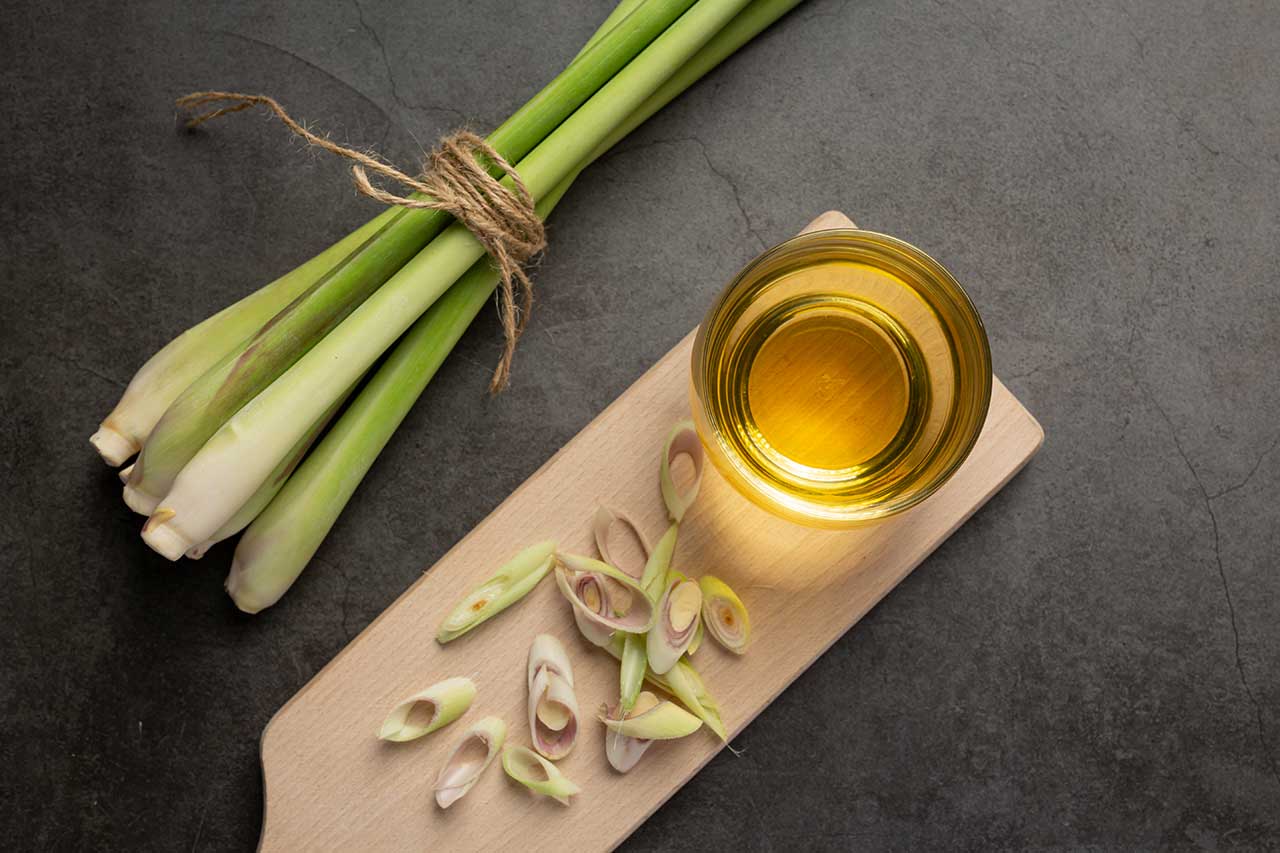
Next up on our all-inclusive list of smells that deter fleas we have citronella. Citronella has long been used in many forms for its powerful insecticide properties. The best part? It does all of this naturally!
We find that the best solutions for natural problems are often found in nature itself, and citronella is absolutely no exception. For example, citronella is often used in mosquito repellents, but it can also be used to repel fleas.
You may be familiar with lighting a citronella candle or using a spray bottle filled with a citronella mixture to keep mosquitoes at bay, but those aren't always the most convenient.
That's why we have our BuzzPatch Mosquito Repellent Patches to save the day and keep mosquitoes (and other bugs) away. These cute stickers utilize a blend of essential oils that prominently features citronella oil to leave you and your kids fresh as a daisy and itch-free.
In order to make the most of citronella's many abilities, you can use it in a few ways. You can create a diluted spray mixture using citronella and other essential oils (many of which we'll mention in a bit).
Or, you can soak cotton balls in the mixture and place them around your home where the fleas tend to hang out. If you choose to go the cotton ball route, be very careful since this could be risky for wandering kids or pets.
3. Peppermint Oil
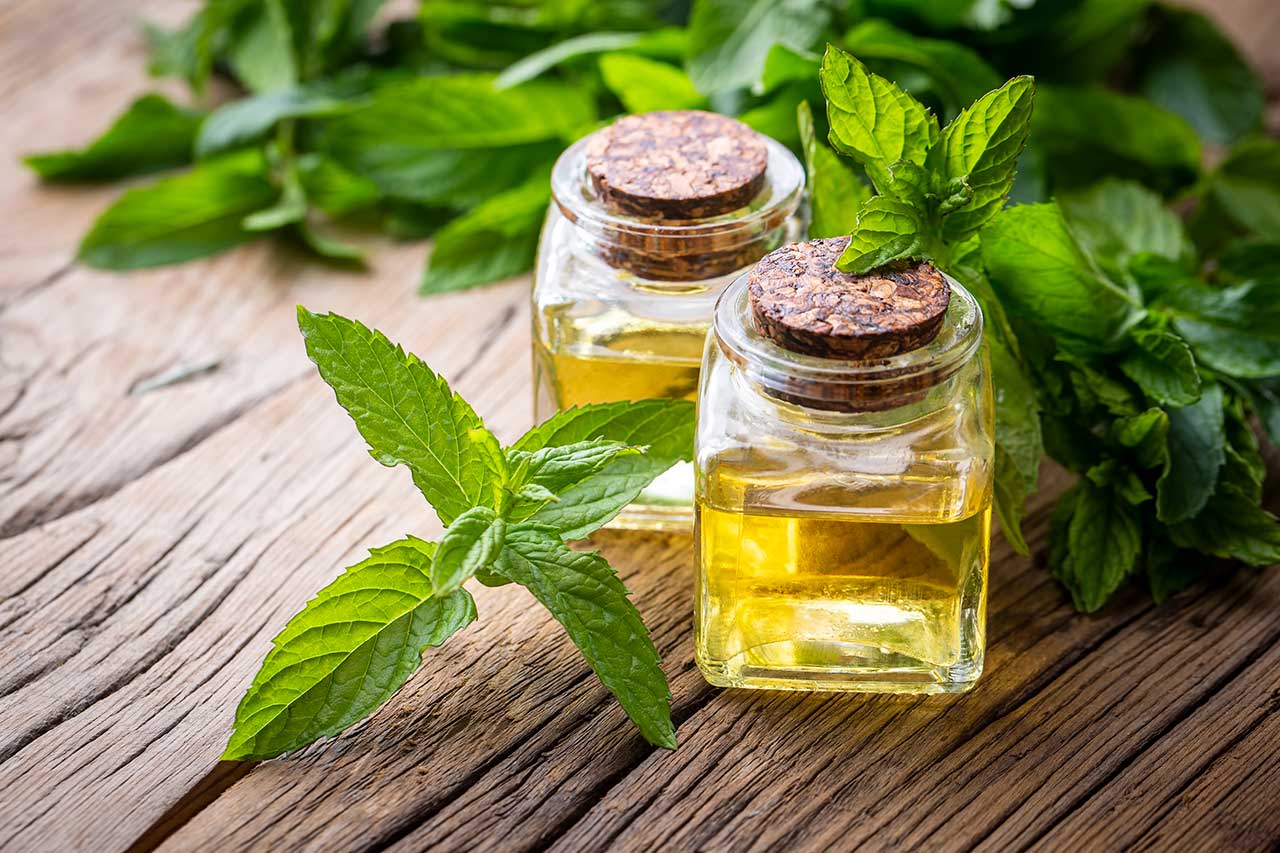
When we think of the most refreshing scents out there, peppermint is likely to be among the first that springs to mind. It wakes many of us up in the morning when we brush our teeth, has the ability to ease headaches and nausea, and is all around a pleasant aroma. However, not all creatures find this fresh smell as invigorating as humans do.
While peppermint oil does not kill fleas like Atlas cedarwood essential oil, it can still be quite effective in keeping them away. This effectiveness becomes even more pronounced when it is used in conjunction with other oils in a spray or mixture.
Together, these essential oils can create a powerful yet safe and chemical-free pesticide. Rather than dealing with all of the consequences of voluntarily introducing harsh chemicals into our homes, we can reap the safer rewards of nature and feel a lot less itchy along the way.
4. Geranium
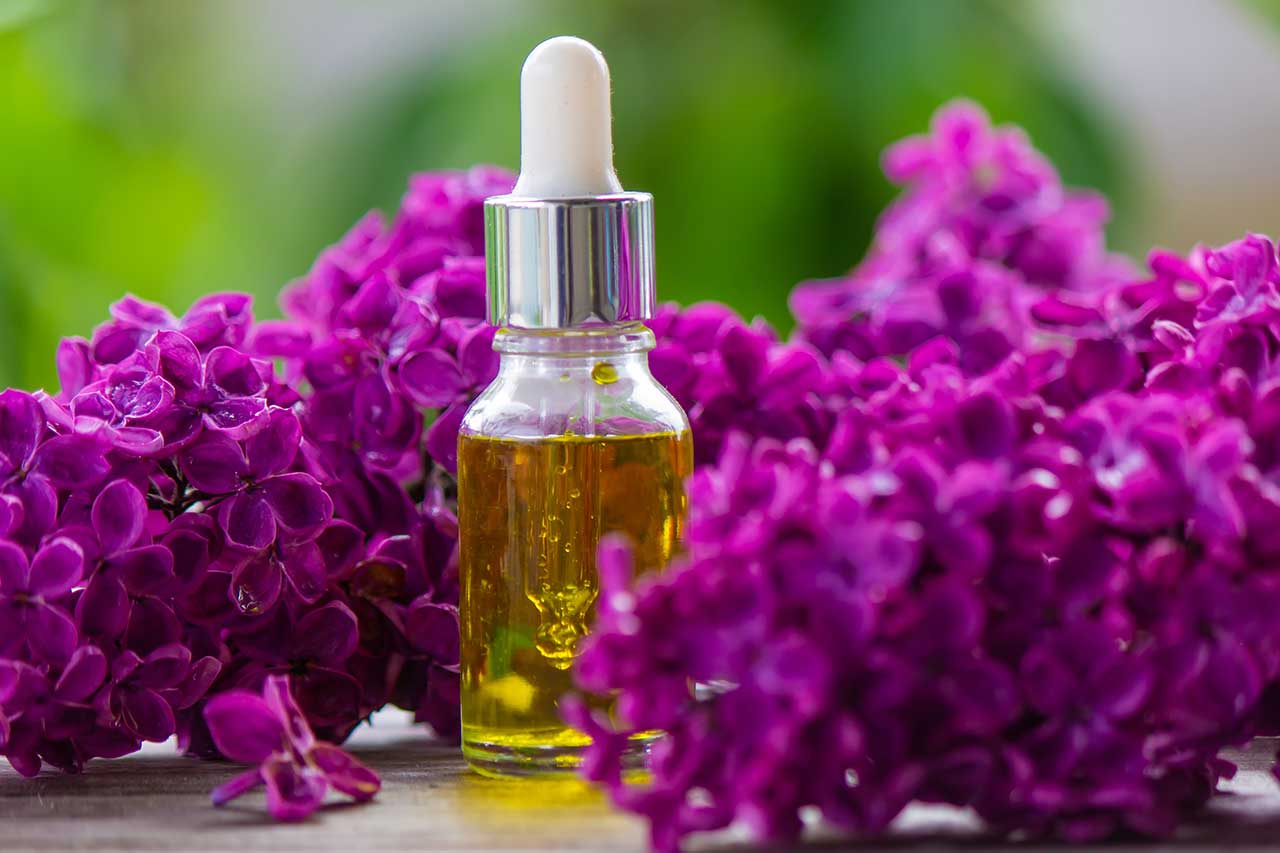
Geranium oil, or rose geranium oil, has long since been used as a natural means of getting fleas to flee. In addition to smelling beautifully floral, this essential oil can pack quite a punch in terms of insect repellent and elimination.
“Elimination” is a slightly flowery word for what we mean here, but when would it be more appropriate to get flowery than when we're talking about rose geraniums? More to the point, this oil has the ability to kill fleas. Clearly, they don't find this scent as romantic and soothing as we do.
Another way that geranium oil stands apart from the crowd is that it can also be used to effectively get rid of fleas on cats. Not all essential oils that are safe for dogs will be safe for cats, and vice versa. No matter what, the oils should be heavily diluted, and you should consult your pet's vet ahead of time before administering the natural treatment.
5. Lavender
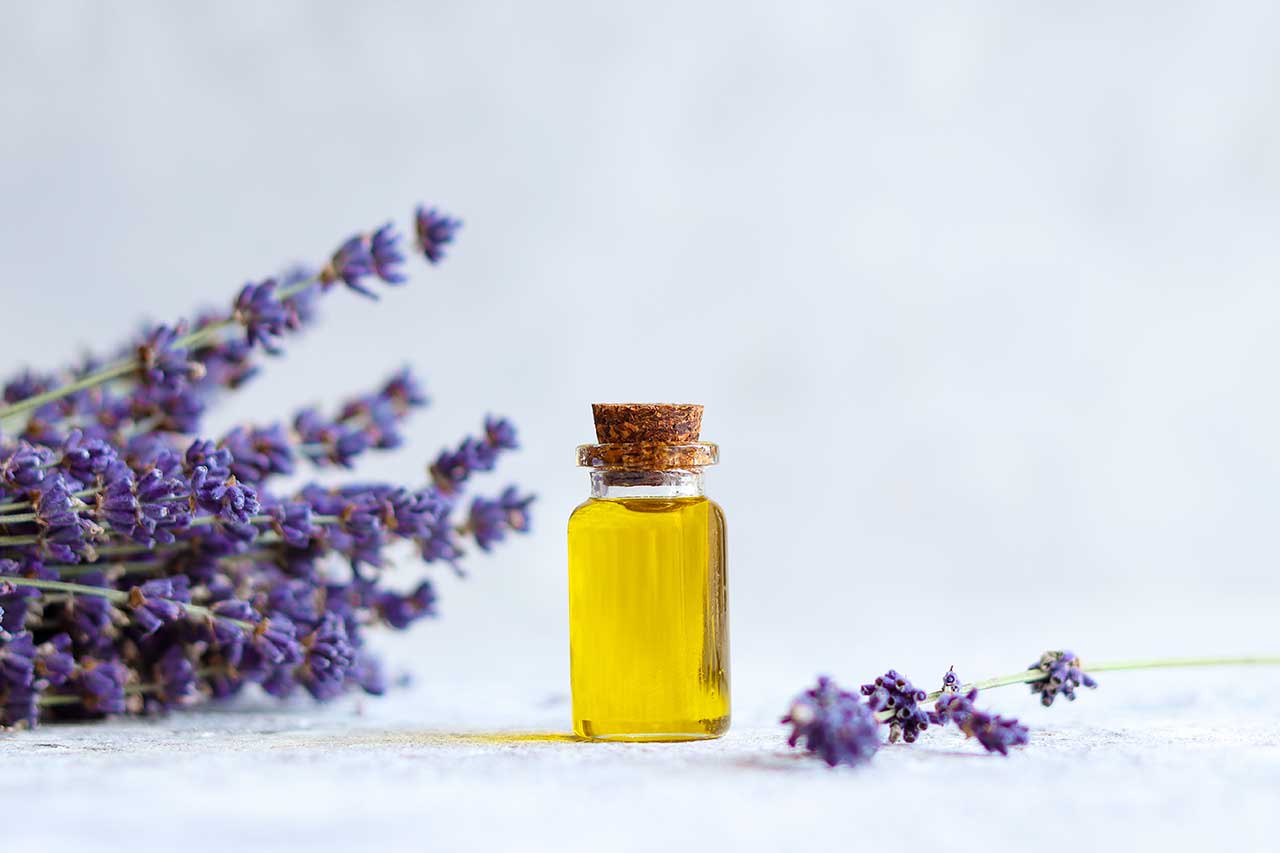
Lavender essential oils can be used for such a wide range of purposes that we can't seem to get enough of this lovely ointment. There's a reason that it's a key ingredient in so many of the products in our Natural Patch Collection. We tend to associate lavender with pleasant concepts like promoting relaxation and helping us fall asleep, but it has a tough side, too. So why not make it a part of an itch patch, right?
This floral scent will be a welcome addition around your home solely on the basis of how nice it smells. Few aromas are more welcoming or calming than a nice lavender. (Well, unless you're a flea, that is.)
Assuming that you're a human, you can utilize this popular oil to repel fleas. It works wonders when added to your essential oil for fleas mixture to spray around your home and stop fleas at the source.
6. Eucalyptus

Next up on our list of smells that deter fleas is eucalyptus. This particular essential oil is often used in oil diffusers, and it's not hard to see why. Its earthy scent makes us feel more grounded, centered, and at peace. Which scent are we talking about, you might ask? Well, none other than eucalyptus, of course!
In addition to its calming properties, eucalyptus can repel bugs. Eucalyptus is so powerful that it can kill fleas and repel them, making it a worthy tool in your arsenal during every step of the process of treating a flea problem.
For the most effective pest control, a eucalyptus spray can be used around frequent flea hotspots such as pet bedding and the corners of carpets.
7. Lemon/Lemongrass

People like to use a little bit of lemon in just about everything. It's a popular ingredient in cooking and baking; it can turn an average glass of water into a flavorful experience and much more.
At this point, we've established that fleas seem to hate many of the things we love. Lemon juice, lemongrass, and lemon oil very much fit the trend of smells that deter fleas yet are more than welcome for most humans.
Perhaps the only trait that we have in common with fleas is that neither of us enjoys drinking straight lemon juice. However, we won't be repelled by having the pleasant fragrance in our midst. Luckily, that is where our similarities end. If fleas get so much as a whiff of lemon, it can be enough to send them hopping in the other direction.
8. Tea Tree Oil
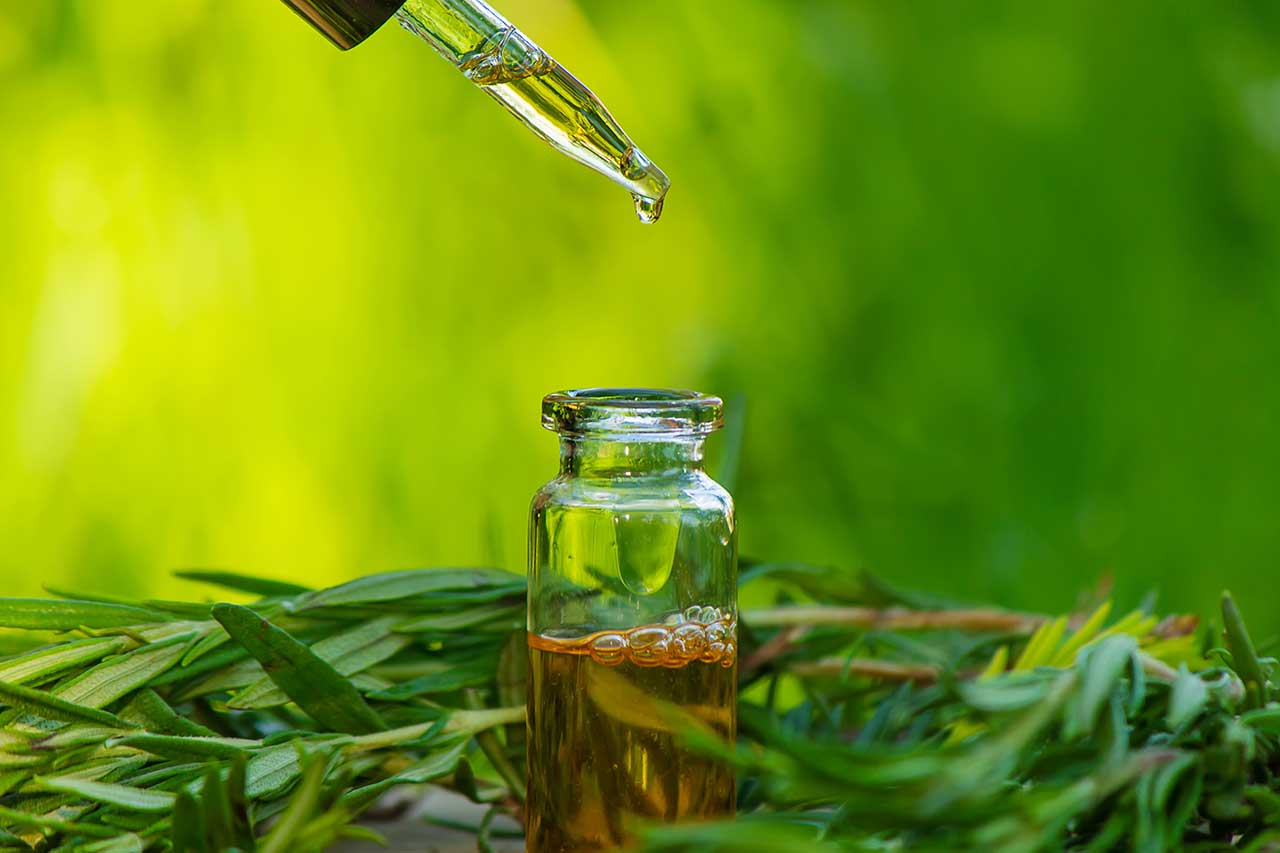
Last up: we want to take a moment to discuss the wonders of tea tree oil. Often used for its antibacterial and antifungal properties, this little oil has so many big things to offer. When sprayed in the home and around spaces where fleas can get inside, it can serve as a powerful deterrent to keep fleas away for good.
Tea tree oil doesn't only fight fleas: It can serve as a remedy for warding off mosquitoes, cockroaches, ants, and lice.
Do Fleas Prefer To Bite Pets Instead of People?
Many of us think that dealing with fleas is only a problem that our pets are afflicted with, but this isn't the case. While it is true that fleas prefer to feed on our furry friends, they still won't hesitate to turn to a human host if their options run dry.
Fleas generally opt to use our pets as their next meal because of the presence of fur. All of that luscious hair provides an excellent hiding spot for them to grow, lay eggs, and become adult fleas.
Humans, meanwhile, tend to be a tad balder than our fluffy animal friends. This means that we aren't as attractive of a place for them to call home. This is why fleas don't live on humans.
Instead, they'll live on nearby surfaces or animals and hop to us to feed. So, even if you haven't been near an animal in a long time, a flea infestation is still a possibility.
If fleas have managed to get into your home, they might live in your carpets, bedding, furniture, or other upholstered surfaces. Living in between the fibers of these surfaces provides them a hiding spot, like when they live in an animal's fur. They'll still need a source of nutrients, though, and that's where people can come in.
How Do Fleas Get Into Our Homes?
Unfortunately, there are a lot of different ways that fleas can make their way into our houses. We like to think that our homes are unstoppable fortresses, but many spots could do with some updating to become more flea repellent.
By reading through a few of the most common ways fleas gain access to our homes, you can be better prepared to repel them in the future.
Through Our Pets
As much as we all love our pets, it is true that they can occasionally make our houses less than spotless.
Whether your dog went for a particularly vigorous run through some mud or your cat temporarily forgot their manners in the litter box, we do often end up having to clean up after our furry friends. This added chore isn't fun, but it is worth it when we get to see our pets and our kids snuggled up together at the end of the day.
One occasion where this complication feels slightly less worth it, though, is when our pets bring in more than just a mess. Especially for pets who regularly go outside, fleas can easily find their way onto your pet in the wilderness. This is an opportunity for other biting bugs to strike your pet, like mosquitoes and ticks.
There are several methods of flea prevention that pet parents can opt for, and asking for their veterinarian's advice is always a wise move. They could possibly advise you to use flea collars, flea combs, home remedies, or other forms of flea treatment.
However, sometimes even, despite our best efforts, these pests can easily find their way from the grass onto your pet's legs, moving up their body and making a home for themselves.
If the fleas see your pet as a hospitable new bachelor pad, they'll hitch a ride right back to your house. Many of the fleas will continue to live on your pet's body, but some of them might transfer to other upholstered areas.
Windows, Doors, and Cracks
Fleas and other insects are waiting for the perfect opportunity to get into your house. After all, you've put all this work into making it a comfortable spot. Why wouldn't bugs want in on it? As a result, it's up to us to make sure that their options for entry are as limited as possible and preferably that they are left with none at all.
Due to fleas' incredibly small size, you really have to be diligent when reinforcing spaces in your house. Make sure to be mindful about leaving windows open (especially ones without screens) and doors. You can even walk around the perimeter of your house looking for cracks, both from the inside and the outside.
Upholstered Furniture or Carpeting
You may have found a beautiful secondhand piece of furniture that you know would look absolutely lovely in your living room, but take a moment to think it through.
If this couch or rug seems like the deal of a lifetime, it's entirely possible that it could be too good to be true. Sure, the piece of furniture might not look as nice as it did in the pictures, but there's also a much more insidious concern to look out for: it could be housing fleas.
Many of us know to be afraid of bedbugs, especially when it comes to secondhand furniture like mattresses. Regrettably, bed bugs are far from the only pesky bloodsuckers that can enter your house this way.
Fleas can nestle themselves into your furniture or carpeting. From there, they just have to wait for you to extend the invitation and unknowingly invite them into your home.
You can lower the likelihood of this happening by ensuring that you get secondhand furniture from reputable sources. For instance, if you find a rolled-up rug on the street, it's probably best to leave it alone. You can deep clean the furniture before bringing it into your house and treat it with natural flea repellents.
An Itch You Can't Scratch
Clearly, turning to harsh chemicals isn't necessary to get a job done effectively. That's a principle that we here at NATPAT live by. That's why, when you're dealing with flea bites or any other itch, you can turn to our MagicPatch Itch Relief Patches to feel better.
By using innovative Grid-Relief Technology, these cheerful bug bite patches will help people of all ages feel less itchy before they know it. Simply place a patch over the site of the itch, and let its Microlift tech get right to work!
FAQs
What smell do fleas hate?
Pet experts say that fleas hate the smell of citrus, cedar, and eucalyptus the most. But there are several other smells that deter fleas. Usually, if the smell is pleasant for you but is on the sour or spicy side, chances are, fleas won't like it.
What can I put on myself to repel fleas?
You can mix a few drops of essential oils like citrus or cedar with water and apply it to yourself. But remember that direct contact with undiluted essential oils can be toxic or harmful to the skin, so only use a small amount and always dilute it.
What is the best homemade flea repellent?
It depends on what you want and what you have lying around. Apple cider vinegar is excellent at repelling fleas, and some people even love its scent. But if you're not the biggest fan or want to "kill two birds with one stone," you can go with something like lavender extract. Lavender will repel fleas and make your room feel more relaxing and pleasant. You're getting an aromatherapy session where fleas aren't invited.
What smell attracts fleas?
When you know the smells that deter fleas, it's only natural to want to know what smells attract them, too; so you can avoid them, if possible. Generally, fleas are attracted to warm-blooded animals and their body heat, carbon dioxide, and certain related scents. Sweet and fruity smells attract them because the fleas associate them with food. Likewise, they're attracted to the smell of sweat and body odor for the same reasons.

